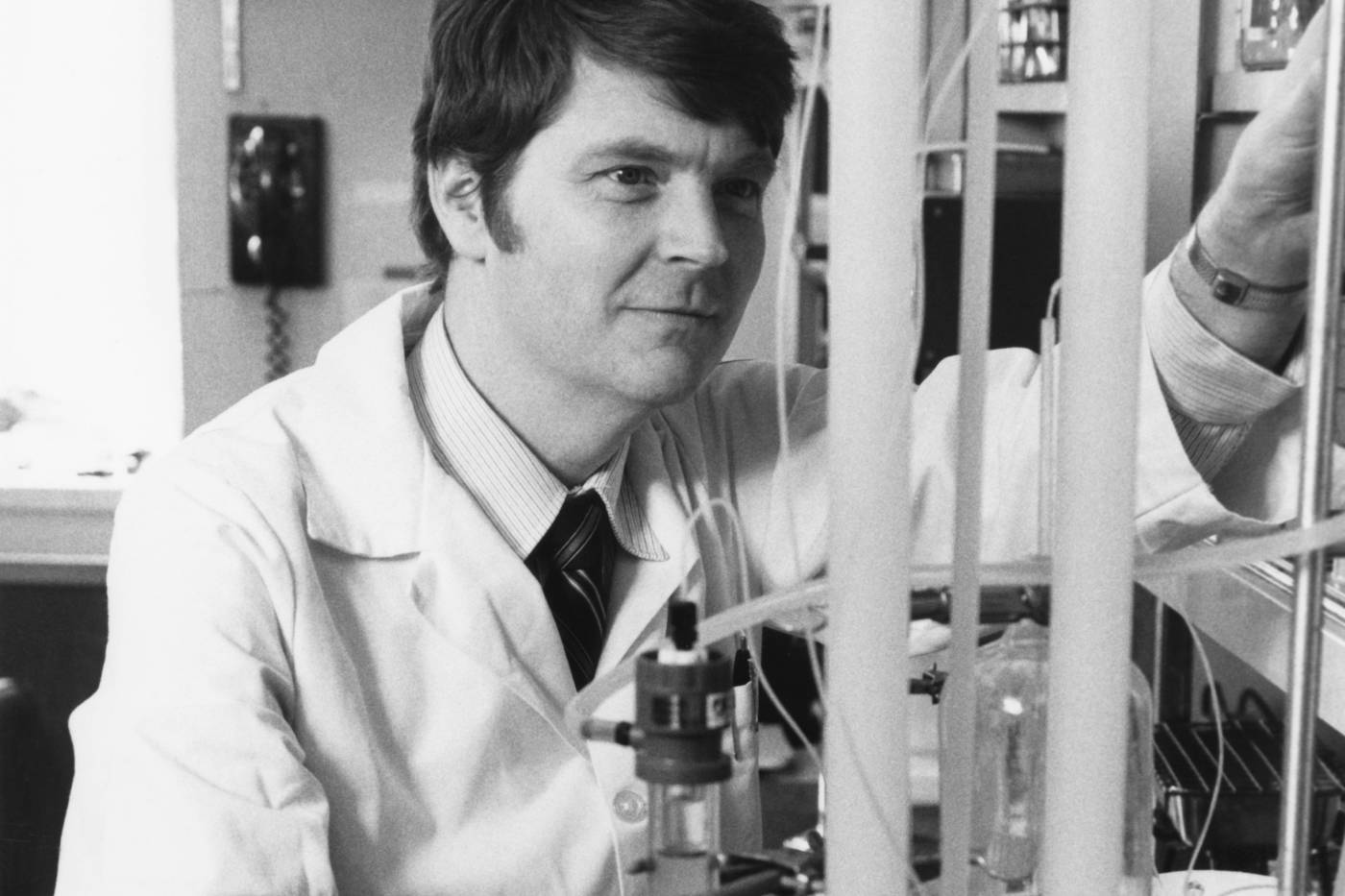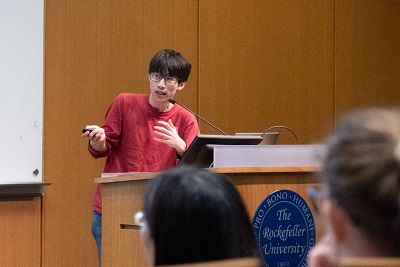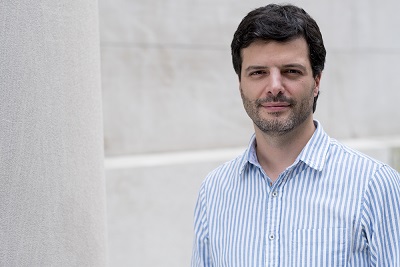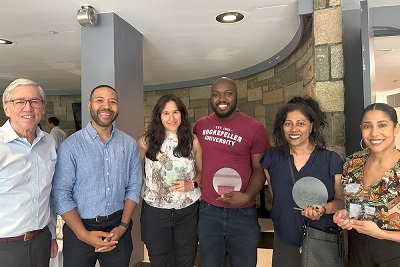Emil C. Gotschlich, creator of lifesaving vaccines, has died
 Emil C. Gotschlich, a physician and molecular chemist who developed vaccines that have protected millions of people from meningococcal meningitis, died on February 14 at the age of 88. He joined The Rockefeller University faculty in 1960 and was the R. Gwyn Follis-Chevron Professor Emeritus and Consulting Senior Physician Emeritus.
Emil C. Gotschlich, a physician and molecular chemist who developed vaccines that have protected millions of people from meningococcal meningitis, died on February 14 at the age of 88. He joined The Rockefeller University faculty in 1960 and was the R. Gwyn Follis-Chevron Professor Emeritus and Consulting Senior Physician Emeritus.
When Gotschlich first arrived at Rockefeller, meningitis—an extremely dangerous disease affecting the membranes of the brain and spinal cord—could be treated with antibiotics and was not considered a major threat. But by the time he was conscripted, in 1966, the bacteria responsible for the major epidemic forms of meningitis had grown resistant to antibiotics. The infection was rampant at military recruit camps, lending newfound urgency to the search for a vaccine.
At the time, vaccines were usually made from dead or weakened pathogens. This method didn’t work for meningitis, however, so Gotschlich, serving as a captain in the Medical Corps at the Walter Reed Army Institute of Research’s Department of Bacteriology, set out to find another way.
Building on work conducted at Rockefeller in the 1920s, he and his Walter Reed colleagues identified a molecular signature or antigen on meningococcal bacteria that prompts the body to develop antibodies against these pathogens. Using a purified form of the antigen, he was able to develop the first effective meningitis vaccine, which soon became approved for use in recruits, virtually eliminating the disease from military bases.
After returning to Rockefeller, Gotschlich helped develop a similar vaccine against meningitis A, a strain especially common in Africa and other parts of the developing world. It proved to be more than 90 percent effective in preventing infection in controlled trials carried out during epidemics in Egypt, Sudan, and Finland in the 1970s.
By the early 1980s, Gotschlich’s meningitis A and C vaccines had been administered to more than 100 million people worldwide. Other researchers would later expand upon his work to develop vaccines against meningitis B, now the most globally prevalent strain, and additional forms of the disease.
Even as he was deeply immersed in his work on meningitis, Gotschlich also paid attention to another major public health threat: gonorrhea, a sexually transmitted disease that can lead to sterility among men, infertility among women, and permanent harm to newborn infants. Like meningococci, the bacteria that cause gonorrhea are prone to acquiring resistance to antibiotics.
Efforts to develop a gonorrhea vaccine didn’t bear fruit until Gotschlich and his colleagues discovered two mechanisms—in the 1970s and 1980s, respectively—by which gonococcal bacteria latch onto and infect human cells. Other scientists subsequently built on their findings to develop a variety of gonorrhea vaccines.
In 2001, the National Academy of Sciences asked Gotschlich to serve on a committee charged with reviewing the Centers for Disease Control and Prevention’s plan to improve the safety and efficacy of the Army’s anthrax vaccine, a plan prompted by the threat of bioterrorism following the terror attacks of September 11. In this role, Gotschlich advocated for expanding tests of the vaccine to vulnerable populations, arguing that “if a serious anthrax outbreak were to occur, we would need to be able to provide a vaccine to older people as well as children”—groups that his own meningitis vaccines successfully protected following their initial introduction amongst Army recruits.
Emil C. Gotschlich was born in Bangkok, Thailand, on January 17, 1935, to German parents. He was mainly raised in Switzerland, however, where his mother worked during World War II at a home for children rescued from the Nazi death camps. The family emigrated to the United States in 1950. Medicine was the family business—both Gotschlich’s parents and a grandfather were doctors. He followed in their footsteps, earning his M.D. from New York University in 1959. But even as a student, he nurtured ambitions beyond becoming a medical practitioner. “I was in my second year in medical school when I discovered research,” he once told an interviewer, “and I never looked back.”
Gotschlich first came to Rockefeller as a guest investigator and associate physician in 1960, was promoted to professor and senior physician in 1978, and became head of the Laboratory of Bacterial Pathogenesis and Immunology in 1981. From 1996 to 2005, he served as vice president for medical science at the Rockefeller University Hospital.
A staunch advocate for the ethical conduct of clinical research, Gotschlich co-created the university’s human subjects protection program. “His leadership was masterful, and crucial for the success of Rockefeller’s clinical research,” says Barry S. Coller, the university’s physician-in-chief and vice president for medical affairs. “He demanded the highest bioethical standards while simultaneously cutting through red tape and helping investigators find the optimal design of their studies.”
Vincent A. Fischetti, a Rockefeller professor, joined the university’s Laboratory of Bacterial Pathogenesis and Immunology just a few years after Gotschlich’s arrival. “Emil was a brilliant and compassionate scientist, admired by his colleagues and an inspiration to many,” says Fischetti, who now heads the lab where he and Gotschlich once worked together under the mentorship of geneticist Maclyn McCarty. “His work will continue to benefit future generations by saving millions of lives worldwide.”
In 1974, Gotschlich received the Squibb Award from the Infectious Diseases Society of America, and in 1978, he shared the Albert Lasker Award for Clinical Medicine for his work on meningococcal vaccines. He was a member of the American Society of Immunologists, the Association of American Physicians, the National Academy of Sciences, and the National Academy of Medicine.
Gotschlich is survived by his wife Kathleen Haines and by his children Emil Christofer Gotschlich, Emil Chandler Gotschlich, Hilda Christina Gartley, and Emily Claire Gotschlich.


